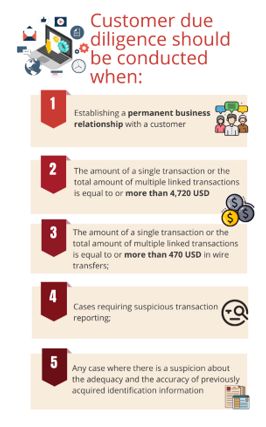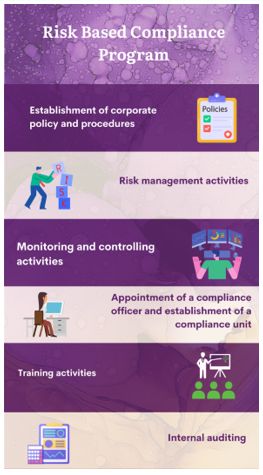1. Introduction
Generating a profit is the aim of almost all criminal acts. The term "money laundering" refers to the processing of criminal proceeds to disguise their illegal origin1. In other words, it is the process of converting "dirty money" to "clean money." Since it allows the criminal to enjoy this money without jeopardizing it, combating with money laundering process is crucial.
Combating against money laundering requires a solid and effective anti-money laundering ("AML") regime. As a matter of fact, AML compliance has been one of the most hotly debated topics in the financial services circles for a while. Hence, this article will examine the anti-money laundering legislation and grasp how the AML regime is shaped in Turkey.
 2.
International Fight against Money Laundering
2.
International Fight against Money Laundering
Global financial crime is a complex technical matter, with criminals using sophisticated electronic banking techniques and taking advantage of the difficulties of following cross-border money flows2. Cross-border elements are invariably present in large-scale money laundering schemes. Since money laundering is a global problem, international cooperation is critical. Therefore, several initiatives have been established to deal with the level problem.
The international effort began by recognizing that drug trafficking was a global problem and could only be addressed effectively on a multilateral basis. Thus, the first international convention3 concerning money laundering had drug trafficking offenses as the only predicate offenses4. Because many more crimes are now international concerns, most countries now include serious crimes such as money laundering predicate offenses5. International organizations such as the United Nations and the Bank for International Settlements took preliminary steps to address the problem at the end of the 1980s. Following the establishment of the Financial Action Task Force ("FATF") in 1989, regional organizations such as the European Union, Council of Europe, and the Organization of American States, established anti-money laundering standards for their member countries6. Below we illustrate the prominent international standard setters.
2.1 United Nations
It is considered the first international organization to undertake meaningful action to fight money laundering worldwide. Furthermore, the UN Security Council is authorized to bind all member countries via a Security Council Resolution, regardless of other actions on the part of an individual country.
United Nation's efforts can be listed as follows7:
- The Vienna Convention
- The Palermo Convention
- International Convention for the Suppression of the Financing of Terrorism
- Security Council Resolution 1373
- Security Council Resolution 1267 and Successors
- Global Programme against Money Laundering
- Establishment of the Counter-Terrorism Committee
2.2. The Financial Action Task Force on Money Laundering (FATF)
FATF is the global money laundering and terrorist financing watchdog. Established as an initiative of the G-7 countries at the 1989 summit in Paris, FATF's objectives are to set standards and promote effective implementation of legal, regulatory, and operational measures for combating money laundering and terrorist financing and monitor countries' progress in implementing these measures8.
The FATF has set forth 40 recommendations9 that are established and designed for universal application by countries worldwide and provide a comprehensive framework for AML.
The three primary purposes of the FATF are as follows:
- Monitoring members' progress
- Reviewing and reporting on laundering trends
- Promoting the adoption and implementation of FATF anti-money laundering standards globally
2.3. The Basel Committee
The Basel Committee was established by the central bank Governors of the Group of Ten countries at the end of 1974 after severe disturbances in international currency and banking markets10.
The Committee has established international standards for bank regulation since its foundation. These standards and guidelines are adopted with the expectation that the appropriate authorities within each country will take all necessary steps to implement them through detailed measures, statutory, regulatory, or otherwise, that best suit that country's national system. Three of the Basel Committee's supervisory standards and guidelines concern money laundering issues. These are as follows:
- Statement on Prevention of Criminal Use of the Banking System for Money Laundering11
- Core Principles for Effective Banking Supervision12
- Customer Due Diligence for Banks13
3. National AML Regime of Turkey
The following regulations shape the National AML regime:
- Turkish Penal Code
- The Law No. 4208 on Prevention of Money Laundering (Abolished) ("Repealed AML Law")
- The Law No. 5549 on Prevention of Laundering Proceeds of Crime ("AML Law")
- The Regulation on Measures Regarding Prevention of Laundering Proceeds of Crime and Financing of Terrorism ("Regulation on Measures")
- The Regulation on Compliance Programs Regarding Obligations on Laundering the Proceeds of Crime and Prevention of Financing of Terrorism ("Regulation on Compliance Program")
- Financial Crimes Investigation Board ("MASAK") General Communiques
3.1. Turkish Penal Code
The laundering of assets acquired by committing a crime is considered an offense under Article 282 of the Turkish Penal Code titled "Laundering of Assets Acquired from an Offense." Accordingly, the following provisions regarding the sanctions for money laundering offenses:
- A person who transfers abroad the assets acquired from a crime requiring a minimum penalty of six months or more imprisonment or processes such proceeds in various ways to conceal the illicit source of such proceeds or to give the impression that they have been legitimately acquired shall be sentenced to imprisonment from three years up to seven years and a judicial fine up to twenty thousand days.
- Without participating in the commitment of the money laundering offense, a person who purchases, acquires, possesses, or uses the proceeds which are the subject of that offense, knowing the nature of the proceeds, shall be sentenced to imprisonment from two years up to five years.
- If this offense is committed by a public officer or professional person in his duty, then the penalty to be imposed shall be increased by one-half.
- Where this offense is conducted in the course of the activities of an organization established to commit an offense, the penalty to be imposed shall be doubled.
- Where a legal entity is involved in the commission of this offense, it shall be subject to security measures specific to the legal entity.
No penalty shall be imposed upon a person who directly enables the securing of financial assets or facilitates securing such assets by informing the relevant authorities of such location before the commencement of a prosecution.
3.2. AML Law
As per the AML Law, the obliged parties are the following ones and their branches, agencies, representatives, and similar affiliated units:
- Banks
- Other financial institutions authorized to issue deposit cards or credit cards
- Foreign exchange bureaus
- Financing and factoring companies
- Capital Markets Brokerage Houses and portfolio management companies
- Payment service providers and electronic money institutions
- Investment partnerships
- Insurance, reinsurance, and pension companies, and insurance and reinsurance brokers
- Financial leasing companies
- Providers of settlement and custody services under the capital markets legislation
- Borsa Istanbul A.S. pertaining only to its custody services relating to Precious Metals and Precious Stones Market
- PTT Corporate (Postal and Telegraph Organization) and cargo companies
- Asset management companies
- Dealers of precious metals, stones, and jewelry
- Directorate General of Turkish Mint pertaining only to its activities of minting gold coins
- Precious metals intermediaries
- Buyers and sellers of real estate for trading purposes and brokers/intermediaries
- Dealers of the sea, air, and land vehicles, including construction machines
- Dealers and auctioneers of historical artifacts, antiques, and works of art
- Lottery and betting operators, including the Turkish National Lottery Administration, Turkish Jockey Club, and Football Pools Organization Directorate
- Sports Clubs
- Public notaries
- Self-employed lawyers
- Certified general accountants, certified public accountants, and sworn-in certified public accountants in private practice
- Independent auditors authorized to conduct an audit in financial markets
- Saving Finance Companies
Crypto asset service providers The main obligations foreseen for the obliged parties are as follows:
- Customer identification (KYC)
- Suspicious transaction reporting,
- Establishment of training, internal audit, control, and risk management systems
- Providing information and documents
- Providing continuous information to MASAK
- Regular monitoring activities (monitoring)
- Preservation and submission of relevant documents
- Assignment of a compliance officer
The Regulations, Guidelines, and MASAK General Communiques clarify the details of the obligations mentioned above.
3.3. Measures Regulation
The obliged parties shall conduct due diligence procedures for their customers (KYC), report the suspicious transactions related to money laundering and financing of terrorism to MASAK, keep the relevant information and documents about their customers, and submit them when the authorities request them.
Customer due diligence is the most crucial element of the AML measures. Hence, Measures Regulation pays special attention to this issue by stipulating provisions requiring obliged parties to take all measures for customer due diligence by adopting risk-based approaches and paying adequate attention to the relevant transactions.
The obliged parties shall carry out customer due diligence in case of:
- Establishing a permanent business relationship with a customer
- The amount of a single transaction or the total amount of multiple linked transactions is equal to approx. 4,720 USD
- The amount of a single transaction or the total amount of numerous linked transactions is equal to approx. 470 USD in wire transfers
- Cases requiring suspicious transaction reporting
- Suspicion about the adequacy and the accuracy of previously acquired identification information.
 Suspicious
transaction reporting ("STR")
is another critical element for AML. If there is any suspicion that
the assets involved in the transaction were obtained illegally or
utilized for criminal reasons, the transaction is considered
suspicious. Yet, suspicion is not just limited to the assets or
transactions but also if obliged parties cannot identify the
customers or receive sufficient information about the purpose of
the business relationship exists. Please keep in mind that
according to AML regulations, obliged parties shall report
all suspicious transactions, regardless of their amount, to
MASAK.
Suspicious
transaction reporting ("STR")
is another critical element for AML. If there is any suspicion that
the assets involved in the transaction were obtained illegally or
utilized for criminal reasons, the transaction is considered
suspicious. Yet, suspicion is not just limited to the assets or
transactions but also if obliged parties cannot identify the
customers or receive sufficient information about the purpose of
the business relationship exists. Please keep in mind that
according to AML regulations, obliged parties shall report
all suspicious transactions, regardless of their amount, to
MASAK.
Submission for suspicious transactions can be made physically or electronically via EMIS.ONLINE by filling out the STR form issued by MASAK. STRs shall be filed within ten working days.
MASAK pays special attention to the confidentiality of submissions. Thus, obliged parties can only provide compliance officers and MASAK information about the reported transactions. For instance, a Turkish subsidiary of a multinational company shall not report information concerning the suspicious transactions to its parent company's headquarters as per the Regulation, even if internal group policies stipulate such information transfer.
3.4. Regulation on Compliance Program
According to the Regulation on Compliance Program, the obliged parties shall establish and operate a risk-based compliance program. These parties are as follows:
- Banks (excluding development and investment banks and the Central Bank of the Republic of Turkey)
- Intermediary institutions active in capital markets,
- Insurance and pension companies
- General Directorate of Post and Telegraph Corporation (PTT) (limited to its banking activities)
- Authorized institutions of Group A specified in the foreign exchange legislation
- Financing, factoring, and leasing companies
- Portfolio management companies
 Precious metals
intermediary institutions
Precious metals
intermediary institutions- Electronic money institutions
- Payment institutions (Except for those who exclusively provide intermediary services for invoice payments, payment order initiation services, and information related to the payment account)
The risk-based compliance program shall contain the following measures:
- Establishment of corporate policy and procedures
- Risk management activities
- Monitoring and controlling activities
- Appointment of a compliance officer and establishment of a compliance unit
- Training activities
- Internal auditing
The board of directors is ultimately responsible for conducting the entire compliance program adequately and effectively according to the scope and characteristics of the obliged party's activities and the provisions under the Compliance Regulation.
3.5. General Communiqués of MASAK
The Communiqués are the essential part of implementing and interpreting the MASAK regulations. The most important ones are as follows:
- Communiqué No. 5 regulates the simplified measures for the customer identification obligation in specific transactions.
- Communiqué No. 7 regulates the customer due diligence and KYC requirements.
- Communiqué No. 8 regulates the extension of time for the obligation to identify the customers with whom they have a continuous business relationship.
- Communiqué No. 13 determines the principles and procedures for suspicious transaction reporting.
- Communiqué No. 19 allows obliged parties to conduct authentication of the customer remotely.
- General Communiqué on Reporting of Suspicious Transactions Regarding Terrorist Financing determines the principles and procedures for suspicious transaction reporting.
4. Turkey's Position at the International Level
Money laundering can occur almost globally as proceeds acquired from crime are critical for nearly all crimes. Moreover, money laundering operations deal with trillions of dollars worldwide each year. therefore, money laundering activities substantially impact major national economies. Hence, international cooperation is crucial to carrying out an effective war against money laundering. Before delving into Turkey's legislation, we'd like to provide brief information regarding Turkey's position at the international level.
In this context, international conventions on money laundering that Turkey has executed and ratified are as follows:
- 1988 UN Convention against Illicit Traffic in Narcotic Drugs and Psychotropic Substances Crime (known as the Vienna Convention)
- Convention of Council of Europe on Laundering, Search, Seizure, and Confiscation of the Proceeds from Crime dated 1990 (known as the Strasbourg Convention or CETS 141)
- 1990 United Nations Convention against Transnational Organized Crime (known as the Palermo Convention)
4.1. FATF Membership of Turkey
In addition, apart from the above, it's remarkable to mention the FATF membership of Turkey. Turkey has been a member of the FATF since 199114. Accordingly, FATF issued Mutual Evaluation Report in 2019 on Turkey. The following are some of the critical issues raised in the Mutual Evaluation Report15:
- Due to its geographic location, Turkey faces the most significant money laundering risks from drug trafficking, migrant smuggling, human trafficking, and fuel smuggling. It also faces substantial terrorist financing risks from both national and international threats.
- Authorities should make better use of financial intelligence to improve and increase the number of money laundering investigations that result in few convictions only and develop a national strategy to permanently deprive criminals of the proceeds of their crimes.
- Turkey needs to fundamentally improve its ability to freeze, without delay, assets linked to terrorism and financing terrorism.
- Supervision of the financial and other relevant sectors is generally well-developed, but sanctions for non-compliance are not always effective, proportionate, and dissuasive.
The most recent report of FATF on Turkey is the 2nd Enhanced Follow-up Report dated 10 May 202216. Accordingly, since the 2019 assessment of Turkey's measures to tackle money laundering and terrorist financing and its 2021 follow-up report, Turkey has taken many actions to comply with its obligations.
Turkey has been in an enhanced follow-up process regarding its mutual evaluation in 2019. In line with the FATF Procedures for mutual evaluations, Turkey has reported to the FATF, and FATF has now re-rated the country on the following Recommendations17:
- Recommendation 23 - In 2019, FATF assessed that lawyers are not covered. There are no specific requirements for Designated Non-Financial Businesses and Professions (DNFBPs) to comply with internal control and high-risk country requirements. Hence, Turkey is rated partially compliant. In 2022, with the amendments, it turned out from partially compliant to compliant
- Recommendation 24 - Transparency and beneficial ownership of legal persons - In 2019, critical deficiencies are considered as a lack of adequate and dissuasive sanctions; lack of a comprehensive assessment of ML/TF risks associated with all types of legal persons created in Turkey; concerns regarding accurate and updated beneficial ownership information and its timely determination in all cases; concerns regarding bearer shares; and the lack of a mechanism to monitor the quality of assistance received. In 2022 it turned out from partially compliant to largely compliant
- Recommendation 25 - Transparency and beneficial ownership of legal arrangements - In 2019, critical deficiencies are assessed as the lack of specific obligations for professional trustees to maintain accurate and up-to-date information; trustees are not legally liable for failure to perform their duties, except for the failure to disclose their status as operating on behalf of another beneficiary, and there are limited sanctions. In 2022, it turned out from partially compliant to largely compliant
With this novel rating, Turkey currently is in full compliance with 12 of the 40 Recommendations of the FATF and largely compliant with 22 of them. However, as indicated in the 2019 Report, Turkey's Non-Profit Organizations ("NPOs") are still an essential deficiency. Accordingly, since Turkey's oversight of the NPO sector is primarily focused on fraud and mismanagement rather than AML, Turkey's outreach and oversight efforts continue to fall short. It is also considered one of the deficiencies that led to Turkey being listed on the "grey list"18. Hence, Turkey should focus on the lack of specific procedures for periodic review of NPO risk - just similar it addressed the deficiency indicated in the 1st Enhanced Follow-up Report dated November 202119 for the lack of a mechanism to ensure that bearer shares/warrants are not abused for AML.
As stated above in the 2019 Report, crimes such as drug trafficking, migrant smuggling, and human trafficking pose the most significant money laundering risks in Turkey. Even though Turkey is in the progress of making appropriate legislative actions to comply with the FATF recommendations fully, The Financial Crimes Investigation Board ("MASAK") works hard and endeavors to take the necessary steps to ensure compliance with the international standards. Yet, there is a way to go for Turkey to have sufficient measures in terms of internationally recognized standards, such as FATF recommendations.
5. A Brief Reminder on Turkey's AML Adventure
In today's world, many countries' financial intelligence units fight against the laundering of criminal proceeds. The offense of money laundering was first regulated under the Repealed AML Law in 1996. MASAK has taken the lead in Turkey since 1997. MASAK is currently organized and operates under the Ministry of Finance and Treasury.
The main functions of the MASAK are as follows:
- To carry out research and sectoral studies regarding the developments in the field of laundering proceeds of crime and the methods for preventing and revealing laundering offenses
- To develop measures
- To gather data
- To analyze and evaluate the collected data
- To launch investigations and examinations
- To convey the obtained information and results to relevant authorities
MASAK publishes annual activity reports containing information such as the number of suspicious transaction reports and inspections by MASAK, budget allocation, and administrative fines imposed. The latest report published on MASAK's official website is the 2021 activity report20. According to this report, MASAK has received 504,995 suspicious transaction reports from obliged parties in 202121. Most notifications were received from payment institutions and electronic money institutions (284,544), followed by banks (205,793).22 MASAK conducted 245 compliance inspections in 2021 by adding 110 more inspections compared to 202023.
The current AML Law came into force in 2006 and was drafted based on international standards for combatting money laundering.
6. Sanctions
If a violation of the aforementioned obligations is determined due to the inspections conducted, MASAK imposes administrative fines in the specified amounts.
In terms of KYC obligation, MASAK imposes an administrative fine of approx. 1,890 USD on obliged parties if a violation occurs in customer identification.
In such a case, if the obliged party is a bank, financing company, factoring company, lender, financial leasing company, insurance, a reinsurance company, pension company, capital market institution, exchange bureaus, payment, and electronic money institution, the administrative fine will be doubled.
In terms of the STR obligation, MASAK imposes an administrative fine of approx. 3,145 USD on obliged parties who violate the said obligation. In such a case, the obliged party is a bank, financing company, factoring company, lender, financial leasing company, insurance, a reinsurance company, pension company, capital market institution, exchange bureaus, payment, and electronic money institution, the administrative fine is doubled. The amount cannot be less than 5% of the transaction amount.
Suppose the obliged parties leak information about STR to someone other than the court and the supervision officers. In that case, the AML Law foresees imprisonment from one to three years and a judicial fine of five thousand days.
Another essential obligation stipulated under the Regulation on Measures is providing information and documents regarding customers, transactions, and the obliged parties' activities. This obligation is not only limited to the obliged parties but also all organizations, institutions, and persons (both private and public)
Suppose a violation occurs concerning the obligation to provide information upon authorities' request. In that case, those who violate are sentenced to imprisonment from one to three years and a judicial fine of up to five thousand days.
Those who may be subject to the aforementioned administrative fine are as follows:
- the obliged party,
- the employee or employees who performed the transaction, and
- the managers who have a role and responsibility in finalizing the transaction.
In terms of the compliance program obligation, AML Law stipulated that if the obliged parties violate the obligations of establishing training, internal audit, control, and risk management systems or appointment of the compliance officer, the authorities grant obliged parties at least thirty days to by officially serving a written notice. At the end of this period, if the obliged parties do not complete their deficiencies, an administrative fine of approx. 31,500 USD. After the notification of this administrative fine, the Ministry gives a new period, not less than sixty days. If the obliged parties do not complete their deficiencies at the end of this period, an additional approx. 62,760 USD. Suppose the deficiencies are not fulfilled within thirty days from the notification of the second administrative fine. In that case, the situation will notify the relevant institution to suspend or restrict the activities of the obliged party for a certain period or cancel their activity permit certificate.
Conclusion
Sophisticated techniques are used for money laundering. These sophisticated techniques might involve multiple financial institutions, multiple financial transactions, intermediaries, financial advisers, accountants, shell corporations, and other service providers, transfers to, through, and from different countries, and various financial instruments24. Hence, money laundering is a complex problem on a global basis that requires an effective fight.
By adopting the new amendments in the current regulations, Turkey has extended the scope of the obliged parties significantly, increased the administrative fines, and strengthened its anti-money laundering mechanisms. It is witnessed that Turkey is on the way to enhancing its compliance with the international standard setters, such as FATF. In addition, MASAK put efforts into the implementation of these standards. However, still a way to go for Turkey to combat money laundering. Considering the FATF standards, Turkey must continue to take necessary measures and find ways to solve its structural problems. Hence, companies need to follow Turkey's reforms in the field and check their compliance and ensure applications are in line with the expected amendments
Footnotes
1 Please see: FAQ of FATF https://www.fatf-gafi.org/faq/moneylaundering/
2 Rainer Hülsse, In Paradise: Metaphors of Money-Laundering Brighten up the Dark Side of Globalization
3 United Nations Convention Against Illicit Traffic in Narcotic Drugs and Psychotropic Substances (1988) (Vienna Convention)
4 Predicate offense is the underlying crime that produces the proceeds that are the subject of money laundering
5 P.A. Schott, Reference Guide to Anti-Money Laundering and Combating the Financing of Terrorism, Second Edition and Supplement on Special Recommendation IX, Washington, The World Bank/IMF, p. I.1. Date accessed 26.05.2022 https://openknowledge.worldbank.org/bitstream/handle/10986/6977/350520Referenc1Money01OFFICIAL0USE1.pdf?sequence=1&isAllowed=y
6 Please see: FAQ of FATF https://www.fatf-gafi.org/faq/moneylaundering/
7 P.A. Schott, Reference Guide to Anti-Money Laundering and Combating the Financing of Terrorism, Second Edition and Supplement on Special Recommendation IX, Washington, The World Bank/IMF, p. I.1. Date accessed 28.05.2022 https://openknowledge.worldbank.org/bitstream/handle/10986/6977/350520Referenc1Money01OFFICIAL0USE1.pdf?sequence=1&isAllowed=y
8 FATF currently has 39 members; 37 jurisdictions and 2 regional organisations (the Gulf Cooperation Council and the European Commission). https://www.fatf-gafi.org/faq/membercountriesandobservers/#:~:text=Which%20jurisdictions%20are%20members%20of,money%20laundering%20and%20terrorist%20financing. Date accessed 16.05.2022
9 Please see. https://www.fatfgafi.org/media/fatf/documents/recommendations/pdfs/FATF%20Recommendations%202012.pdf Date accessed 28.05.2022
10 Please see. https://www.bis.org/bcbs/history.htm. Date accesed 28.05.2022
11 Please see. https://www.bis.org/publ/bcbsc137.pdf. Date accesed 28.05.2022
12 Please see. https://www.bis.org/publ/bcbs30.pdf. Date accesed 28.05.2022
13 Please see. https://www.bis.org/publ/bcbs85.pdf. Date accesed 28.05.2022
14 Bkz. https://www.fatf-gafi.org/countries/#Turkey
15 FATF Mutual Evaluation Report Turkey. Date accessed 26.05.2022 http://www.fatf-gafi.org/media/fatf/documents/reports/mer4/Mutual-Evaluation-Report-Turkey-2019.pdf
16 FATF (2022), Anti-money laundering and counter-terrorist financing measures - Turkey 2nd Enhanced Follow-up Report, FATF, Paris http://www.fatf-gafi.org/publications/mutualevaluations/documents/fur-turkey-2022.html Date accessed 16.05.2022
17 FATF (2022), Anti-money laundering and counter-terrorist financing measures - Turkey 2nd Enhanced Follow-up Report, FATF, Paris http://www.fatf-gafi.org/publications/mutualevaluations/documents/fur-turkey-2022.html Date accessed 16.05.2022
18 Please see. https://www.fatf-gafi.org/publications/high-risk-and-other-monitored jurisdictions/documents/increased-monitoring-october-2021.html Date accessed 30.05.2022.
19 FATF (2021), Anti-money laundering and counter-terrorist financing measures - Turkey.
1st Enhanced Follow-up Report & Technical Compliance Re-Rating, FATF, Paris
http://www.fatf-gafi.org/publications/mutualevaluations/documents/fur-turkey-2021.html Date accessed 30.05.2022.
20 Please see. https://ms.hmb.gov.tr/uploads/sites/12/2022/03/Faaliyet-Raporu-2021.pdf Date accessed 30.05.2022.
21 Annual Report of MASAK p. 15.
22 Annual Report of MASAK p. 18.
23 Annual Report of MASAK p. 15.
24 P.A. Schott, Reference Guide to Anti-Money Laundering and Combating the Financing of Terrorism, Second Edition and Supplement on Special Recommendation IX, Washington, The World Bank/IMF, p. I.1. Date accessed 26.05.2022 https://openknowledge.worldbank.org/bitstream/handle/10986/6977/350520Referenc1Money01OFFICIAL0USE1.pdf?sequence=1&isAllowed=y
The content of this article is intended to provide a general guide to the subject matter. Specialist advice should be sought about your specific circumstances.



